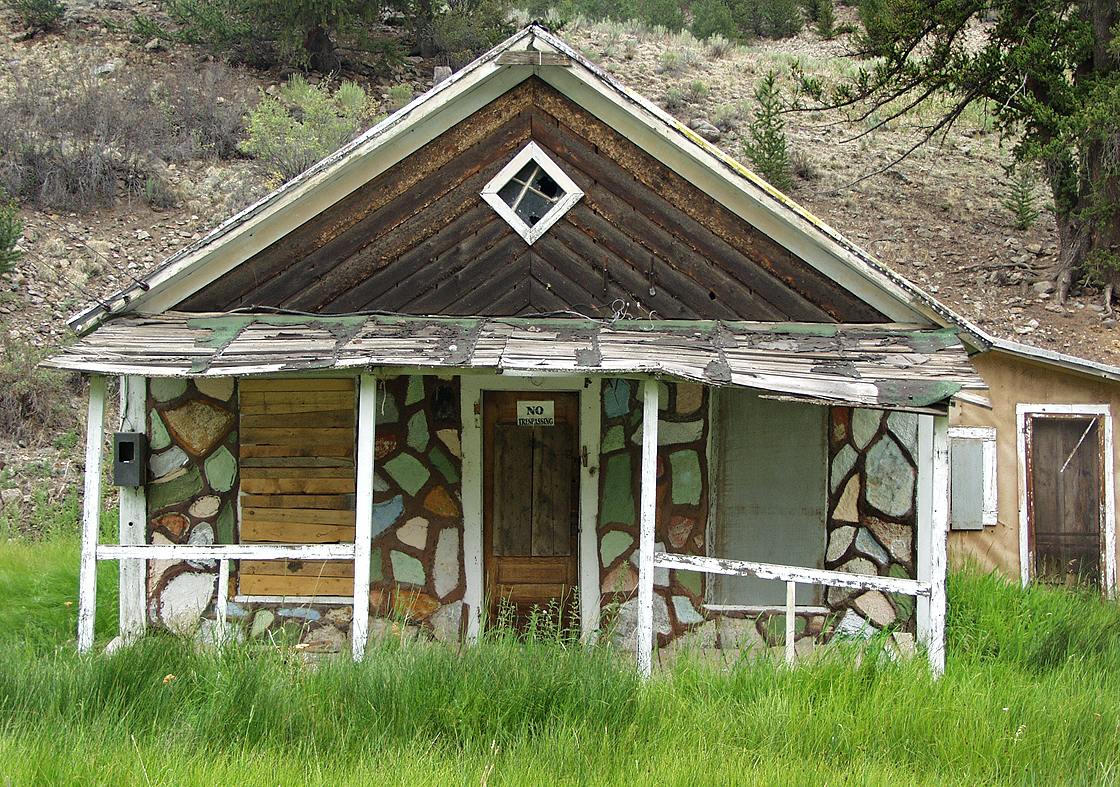By Allen Best
When does a town cease to be a town? That’s been the question this year for Bonanza, a place that for most of its existence has failed to live up to its name.
It’s located in south-central Colorado, 13 miles of gravel road from the nearest highway, post office or business. This is in the forested fringe of the northern San Luis Valley, a broad triangle of high desert sandwiched by 13,000- and 14,000-foot peaks.
The town was launched as a formal municipality in 1881. This was during Colorado’s mining boom. Bonanza had seven dance halls, four smelters, two hotels and one newspaper, along with 1,000 residents.
Mining petered out and a fire in 1937 destroyed much of what remained. In the early 1970s, a commune was formed near Bonanza, but it was abandoned.
As the 21st century arrived, only a handful of people remained.
“It’s more like a town inhabited by hermits, which would seem oxymoronic, yet rumor has it – and personal experience has borne this out – that these people do not socialize with one another,” wrote non-resident property owner Antonya Nelson in a 2010 essay in the New York Times. She disguised the town with the name “Eureka.”
“Feuding might be too strong a word for what they do, but there are only 12 of them (officially), and you never see two together. Ever. For all I know, it’s one guy with a lot of costumes.”
Bonanza now has just one resident, as reporters for The Denver Post, Al Jazeera and other media have discovered on journeys this year to Bonanza. The others died or left.
The reporter for Al Jazeera apparently got desperate for an interview. “To someone standing by a car at the crossroads, honking the horn in a futile hope of rousing any sign of life, Bonanza can feel like the setting of a Stephen King novel,” wrote correspondent Greg Campbell.
Since Bonanza is in Saguache County, the commissioners last year petitioned to have the town disincorporated. In January, the Colorado secretary of state began proceedings to determine whether Bonanza met legal requirements. State law says that an incorporated town must have an elected or at least appointed board and hold regular meetings.
It’s not clear any of that has happened in Bonanza in the last five years. In fact, the former mayor didn’t even live in the town. The last town election was in the 1990s.
Ben Gibbons, the county attorney, said he expects a ruling sometime in early November.
Some nearby residents have opposed the disincorporation, but Gibbons says the county commissioners are unclear in their reasoning.
The opinion that probably should matter most is that of Bonanza’s only full-time resident, Mark Perkovich. He moved from Denver to Bonanza 20 years ago simply because of his desire for isolation. “I wanted to be at the end of a dirt road in the middle of nowhere,” he told The Denver Post in March.
Perkovich sees no real change if Bonanza loses its status as a town. Saguache County already maintains the roads, and there is no water or sewer service, post office or police force. All it has is a name, and that really won’t go away.
Combing through state records, Colorado Public Radio earlier this year found that 43 towns have formally been abolished in the last decade. Most of them were merely pieces of paper, and 30 of them were in Summit County, eliminated in one simple action in 2005.



